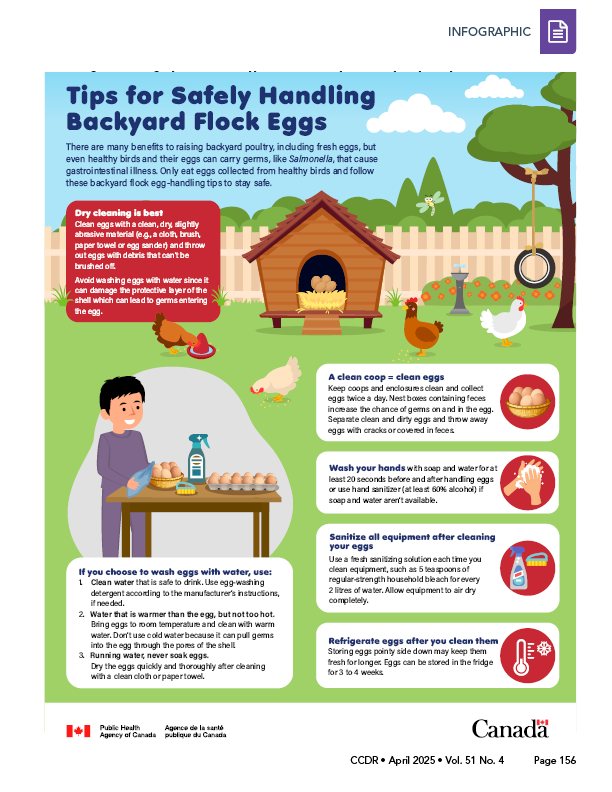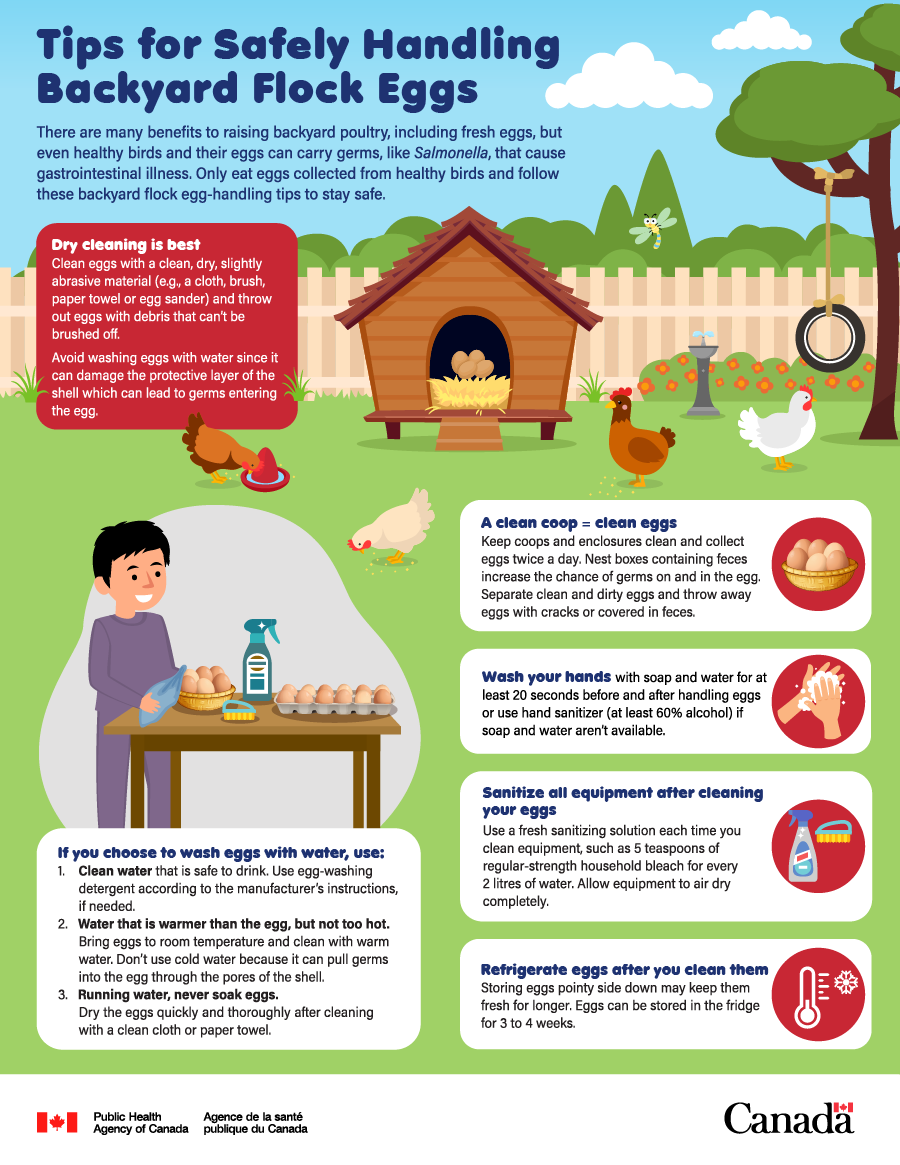Tips for Safely Handling Backyard Flock Eggs

 Download this article as a PDF (652 KB)
Download this article as a PDF (652 KB)Published by: The Public Health Agency of Canada
Issue: Volume 51-4, April 2025: Challenges in Managing Gonorrhea and Prevention
Date published: April 2025
ISSN: 1481-8531
Submit a manuscript
About CCDR
Browse
Volume 51-4, April 2025: Challenges in Managing Gonorrhea and Prevention
Infographic

Text description: Infographic
Tips for Safely Handling Backyard Flock Eggs
There are many benefits to raising backyard poultry, including fresh eggs, but even healthy birds and their eggs can carry germs, like Salmonella, that cause gastrointestinal illness. Only eat eggs collected from healthy birds and follow these backyard flock egg-handling tips to stay safe.
A clean coop = clean eggs
Keep coops and enclosures clean and collect eggs twice a day. Nest boxes containing feces increase the chance of germs on and in the egg. Separate clean and dirty eggs and throw away eggs with cracks or covered in feces.
Dry cleaning is best
Clean eggs with a clean, dry, slightly abrasive material (e.g., a cloth, brush, paper towel or egg sander) and throw out eggs with debris that can't be brushed off.
Avoid washing eggs with water since it can damage the protective layer of the shell which can lead to germs entering the egg.
If you choose to wash eggs with water, use:
- Clean water that is safe to drink. Use egg-washing detergent according to the manufacturer's instructions, if needed.
- Water that is warmer than the egg, but not too hot. Bring eggs to room temperature and clean with warm water. Don't use cold water because it can pull germs into the egg through the pores of the shell.
- Running water, never soak eggs. Dry the eggs quickly and thoroughly after cleaning with a clean cloth or paper towel.
Refrigerate eggs after you clean them
Storing eggs pointy side down may keep them fresh for longer. Eggs can be stored in the fridge for 3 to 4 weeks.
Wash your hands with soap and water for at least 20 seconds before and after handling eggs or use hand sanitizer (at least 60% alcohol) if soap and water aren't available.
Sanitize all equipment after cleaning your eggs
Use a fresh sanitizing solution each time you clean equipment, such as 5 teaspoons of regular-strength household bleach for every 2 litres of water. Allow equipment to air dry completely.
